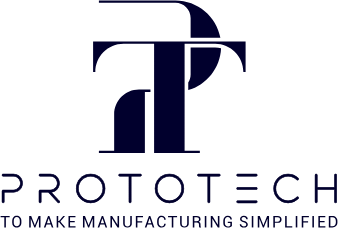Introduction
Precision is critical in the healthcare industry, where even the smallest discrepancies can have significant implications. This is where medical CNC machining comes into play, enabling the production of precise, reliable components used in medical devices, implants, and surgical tools. As CNC (Computer Numerical Control) machining continues to advance, its role in healthcare has expanded, supporting a wide range of applications that enhance patient care and safety. In this article, we’ll explore the applications, advantages, and future trends of CNC machining in medicine.
Applications of Medical CNC Machining
Medical CNC machining is used to create a variety of components and devices that are vital to patient care. Here are some of the key applications:
1. Surgical Instruments
Precision is essential for the manufacturing of surgical instruments, as even a minor error can impact the success of a procedure.
- Scalpels, Forceps, and Scissors: CNC machining ensures that surgical instruments have sharp edges, precise dimensions, and ergonomic designs, enhancing their effectiveness during operations.
- Minimally Invasive Tools: Medical CNC machining allows for the production of tools used in minimally invasive surgeries, such as laparoscopic instruments, where compact size and accuracy are crucial.
2. Medical Implants
CNC machining is pivotal in creating custom implants tailored to individual patient needs.
- Orthopedic Implants: CNC machines produce knee, hip, and spinal implants that match patient-specific anatomical structures, ensuring a better fit and improved recovery.
- Dental Implants: Dental crowns, bridges, and implants are crafted with high precision to ensure proper placement, function, and aesthetics.
3. Prosthetics and Orthotics
Custom prosthetic and orthotic components require precise design and manufacturing to meet patient needs.
- Prosthetic Limbs: CNC machining creates durable, lightweight components for prosthetic limbs, providing improved mobility and comfort.
- Orthotic Braces: Custom orthotic braces and supports are manufactured using CNC technology, allowing for adjustments that accommodate individual patient requirements.
4. Medical Device Components
Many medical devices depend on CNC-machined components for optimal performance and safety.
- Diagnostic Equipment: CNC machining produces components for MRI machines, CT scanners, and X-ray devices, ensuring accuracy in imaging and diagnosis.
- Ventilator Parts: During the COVID-19 pandemic, CNC machining played a vital role in rapidly producing ventilator components, demonstrating its importance in emergency healthcare situations.
5. Robotics-Assisted Surgery
CNC machining is instrumental in manufacturing the parts used in robotic surgery systems, enabling precision and control.
- Robotic Arms and End Effectors: These components require high precision to perform complex surgical procedures with minimal invasiveness and maximum accuracy.
Advantages of CNC Machining in Medicine
Medical CNC machining offers several advantages that make it an indispensable tool in healthcare manufacturing:
1. Precision and Accuracy
CNC machining provides unparalleled accuracy, meeting the stringent demands of medical device manufacturing.
- Tight Tolerances: Medical components require extremely tight tolerances to ensure proper function, which CNC machines can achieve consistently.
- Consistent Quality: CNC machines deliver consistent results, minimizing the risk of defects that could compromise patient safety.
2. Customization and Flexibility
The ability to customize components is crucial in healthcare, where personalized treatment can lead to better outcomes.
- Patient-Specific Implants: CNC machining can create implants that are tailored to individual patients’ anatomy, improving fit and functionality.
- Rapid Prototyping: CNC machining facilitates the rapid development of prototypes, enabling faster innovation and testing of new medical devices.
3. High-Quality Materials
CNC machines can work with a wide range of biocompatible materials that are necessary for medical applications.
- Biocompatible Metals: Titanium, stainless steel, and cobalt-chrome are commonly used in implants and instruments due to their strength and biocompatibility.
- Medical-Grade Plastics: CNC machining also processes medical-grade plastics, such as PEEK and PTFE, which are used in components like catheters and tubing.
4. Improved Safety and Hygiene
The high level of precision offered by CNC machining contributes to better safety and hygiene in medical manufacturing.
- Sterilization-Ready Surfaces: CNC-machined components have smooth surfaces that are easy to clean and sterilize, reducing the risk of infections in medical settings.
- Reduced Contamination: Automated CNC processes minimize human contact, reducing the risk of contamination during manufacturing.
5. Efficiency and Cost-Effectiveness
CNC machining is both efficient and cost-effective, making it ideal for large-scale production and custom orders.
- Scalability: CNC machines can produce parts in large quantities without sacrificing quality, making them suitable for high-demand medical components.
- Reduced Waste: CNC machining is a subtractive process that precisely removes material, reducing waste and lowering production costs.
Future Trends in Medical CNC Machining
As technology evolves, new trends in medical CNC machining are emerging that could further enhance healthcare manufacturing:
1. Integration with 3D Printing
Combining CNC machining with 3D printing offers new possibilities for medical device manufacturing.
- Hybrid Manufacturing: By integrating CNC machining and 3D printing, manufacturers can create complex components with improved precision, speed, and material properties.
- Customized Implants and Prosthetics: This combination allows for faster production of custom implants and prosthetics, improving patient outcomes.
2. Advanced Automation and AI
Automation and AI are set to play a bigger role in CNC machining, enhancing its capabilities.
- Smart CNC Machines: AI-powered CNC machines can optimize cutting paths, tool selection, and machining parameters, improving efficiency and reducing lead times.
- Predictive Maintenance: Advanced sensors and AI algorithms can predict when CNC machines need maintenance, minimizing downtime and ensuring continuous production.
3. Improved Materials for Medical Applications
Research and development in material science will lead to better materials for medical CNC machining.
- New Biocompatible Alloys: Advances in alloy development will enable stronger, more durable implants that are also lightweight.
- Medical-Grade Composites: The use of composites in medical components could offer better wear resistance, corrosion resistance, and biocompatibility.
4. Micro-Machining for Minimally Invasive Devices
Micro-machining is becoming increasingly important in the development of minimally invasive surgical tools and devices.
- Precision Micro-Tools: CNC micro-machining allows for the production of tiny, precise tools that can be used in delicate surgical procedures.
- Smaller Devices: As healthcare continues to trend toward less invasive treatments, the demand for micro-machined components will grow.
Conclusion
Medical CNC machining is vital to the healthcare industry, enabling the production of precise, reliable, and customizable components for a wide range of applications. Its advantages, such as accuracy, material versatility, and scalability, make it an indispensable part of modern medicine. As new technologies like AI, 3D printing, and advanced materials continue to develop, medical CNC machining will play an even larger role in the future of healthcare manufacturing.Interested in learning more about medical CNC machining? Contact us today to explore how CNC technology can enhance your medical manufacturing processes.








